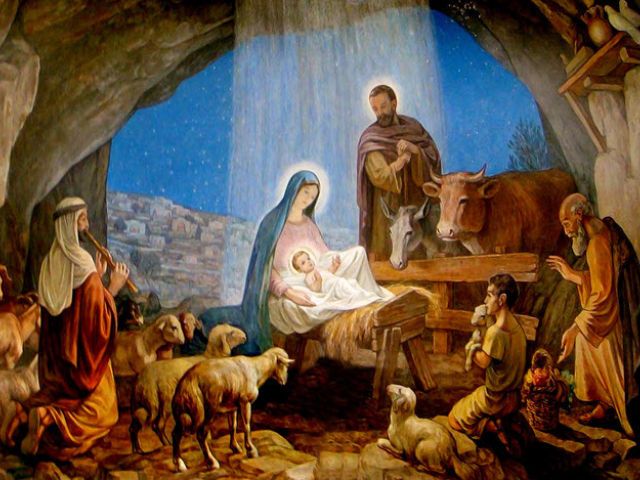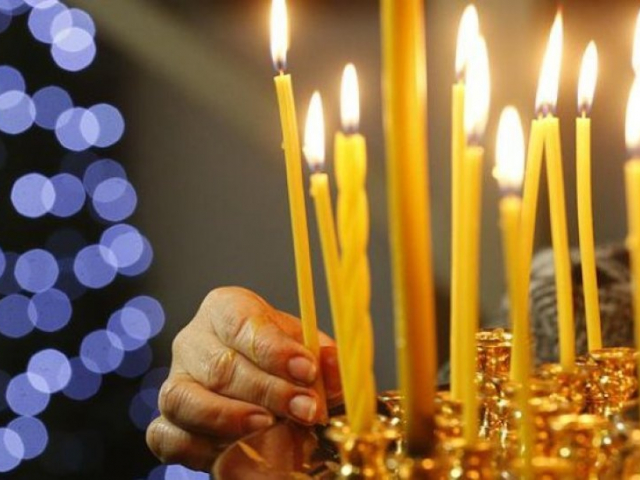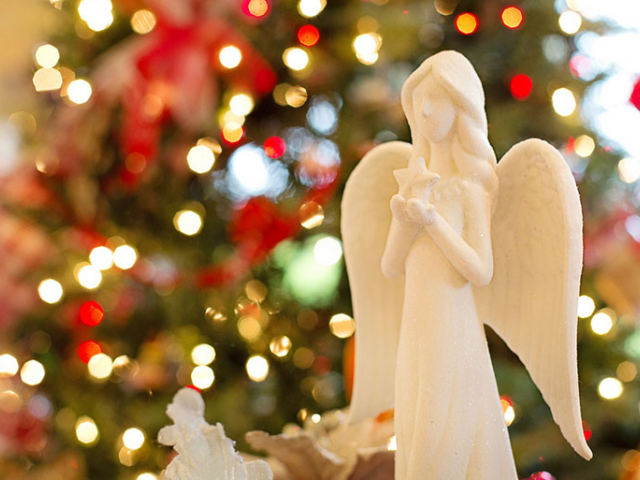
Date of holiday
Western and Eastern churches celebrate Christmas on a different date due to the different systems of chronology. Catholics celebrate the holiday according to the Gregorian calendar, two weeks earlier than Orthodox Christians do. Notably, the date of Christmas is actually the same, and the differences exist only in the calendar. On Christmas Eve, Catholics attend evening mass. In the evening, when after the first star rises, they start their festive meal. As a rule, people cook a lot of delicious food. In the Orthodox tradition, a 40-day period called the Nativity Fast occurs before Christmas. Usually, people do not arrange a sumptuous feast on Christmas Eve.

Christmas service
Orthodox churches traditionally hold one Christmas service which lasts until the morning. It includes the Great Compline, Matins, and Liturgy. On Christmas Eve, believers go to the Church for Vespers. They confess and wait for the Divine Liturgy where they take communion of the Holy Mysteries of Christ. In Catholic churches, there is an evening mass before Christmas, as well as three separate masses that take place at night, in the morning and in the afternoon. It symbolizes the birth of the Savior in the bosom of the Father, in the womb of the virgin Mary, and in the soul of every person.

Importance of holiday
Orthodox Christmas is a religious holiday, not a family one as many assume. It is preceded by fasting that requires spiritual practice and physical work. The Orthodox Christmas service has not changed for many centuries. In the Orthodox Church, Easter is more crucial than Christmas: for the Orthodox Church, the resurrection of Christ is far more significant, while Catholics believe that the birth of Christ should be praised the most. For Catholics, Christmas is the most favorite family holiday. Fasting before Christmas is not as strict as in the Orthodox church. The Catholic Church service has adapted to the modern world and simplified some of its strict postulates.

Festive food
On Christmas, Catholics have an abundance of various dishes on the table but the most important one is the stuffed turkey with apples. The Orthodox Christians prepare festive food on Christmas Eve, arranging 12 Lenten dishes according to the number of apostles of Jesus Christ. Additionally, people cook such traditional dishes as sochivo and vsvar (compote). Sochivo is made from wheat moistened with fruit juice or honey. It is cooked from millet or rice with honey, dried fruits, and nuts. Vsvar is a compote made from dried fruits. At Christmas, Catholics give presents to friends and family, trying to appease everyone, while Orthodox Christians usually prepare gifts only for children.

Symbol of holiday
Orthodox believers honor Jesus Christ, whereas Catholics chose another symbol of Christmas - St. Nicholas or Santa Claus. Santa Claus is the heart of the holiday. He gives gifts to children. He does not come to the children with a bag of toys and sweets like Father Christmas (Ded Moroz) in Russia. During the night, he visits children and hides gifts in socks, hanging them over the fireplace, and then he leaves through the chimney. This tradition has both Christian and pagan origins. Many Orthodox priests do not approve this custom as they think that pagan traditions should not be mixed with Christian ones.
 Български
Български 
 Русский
Русский English
English Bahasa Indonesia
Bahasa Indonesia Bahasa Malay
Bahasa Malay ไทย
ไทย Español
Español Deutsch
Deutsch Français
Français Tiếng Việt
Tiếng Việt 中文
中文 বাংলা
বাংলা हिन्दी
हिन्दी Čeština
Čeština Українська
Українська Română
Română
